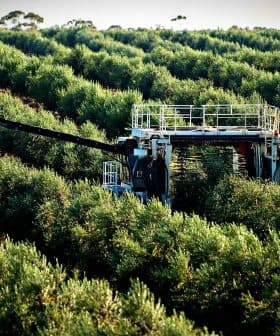Why the U.S. Lags Behind Other Western Nations on Carbon Tax Issue
Implementing a carbon tax is increasingly viewed as one of the best ways to curb greenhouse gas emissions, but the U.S. has struggled to pass one.
The COP26 climate conference in Glasgow resulted in an international consensus on implementing a carbon tax to reduce greenhouse gas emissions and encourage a shift to renewable energy sources. The United States has not implemented a carbon tax due to concerns about its impact on the economy and lower-income households, instead focusing on a fee on methane emissions to reduce greenhouse gas emissions by 30 percent by 2030.
The COP26 climate conference in Glasgow led to an international consensus on introducing a carbon tax.
The goal of the tax on fossil fuels would be to disincentivize using carbon-based fuels to reduce greenhouse gas emissions. It would also encourage a shift toward renewable sources of energy.
Nothing would do more to accelerate innovation and invest all citizens in a clean energy future than an economy-wide carbon fee, with corresponding dividends for the American people.
“We need countries to come together to agree on international standards to make that big shift to the low carbon economy,” said Lord Greg Barker, executive chairman at EN+, a green energy firm. “It would be much better for the world if there was a common carbon price.”
See Also:Climate Change CoverageTwenty-seven countries currently have a carbon tax. The World Bank also reports that 65 carbon tax initiatives are underway across the globe at local, national and regional levels.
However, the United States is not one of them. Carbon taxation has been a debated issue in the U.S. since the 1970s, but no legislation to implement one has passed. There are plenty of reasons for that.
First, opponents argue that levying a carbon tax on U.S. companies that produce or rely on carbon-based fuel would harm them, in turn hurting the economy. They also believe it would reduce the United States’s competitive edge against China, which does not have a carbon tax and is the largest greenhouse gas emitter in the world.
Another major problem of introducing a carbon tax in the U.S. is the nature of the tax. A carbon tax is a regressive tax, which means everybody pays the same price for using carbon-based fuels. The U.S. government fears that it will disproportionately affect lower-income American households.
A way around that problem is to implement a revenue-neutral carbon tax. Revenues collected from this tax will return to American households in the form of tax cuts. The exact mechanism of how this will happen, however, is not yet clearly laid out.
See Also:EPA Plans to Tackle Food Waste in Effort to Reduce Carbon Emissions“Nothing would do more to accelerate innovation and invest all citizens in a clean energy future than an economy-wide carbon fee, with corresponding dividends for the American people,” said Carlton Carroll, a Climate Leadership Council spokesperson.
Some states already have carbon pricing. For example, California’s cap-and-trade system sets a maximum amount of emissions for greenhouse gas emitters. Companies can buy or sell their permits at a price so that everyone has an incentive to reduce greenhouse gas emissions. Similarly, Washington state also introduced a carbon pricing system in April 2021.
At the federal level, however, carbon pricing is still being debated. The administration of President Joe Biden has allocated $555 billion (€495 billion) to address the issue of climate change.
It aims to reduce greenhouse gas emissions by 30 percent by 2030. Instead of introducing a carbon tax, the government said it would implement a fee on methane emissions, which it hopes will compel oil and gas companies to curb emissions.
Share this article









